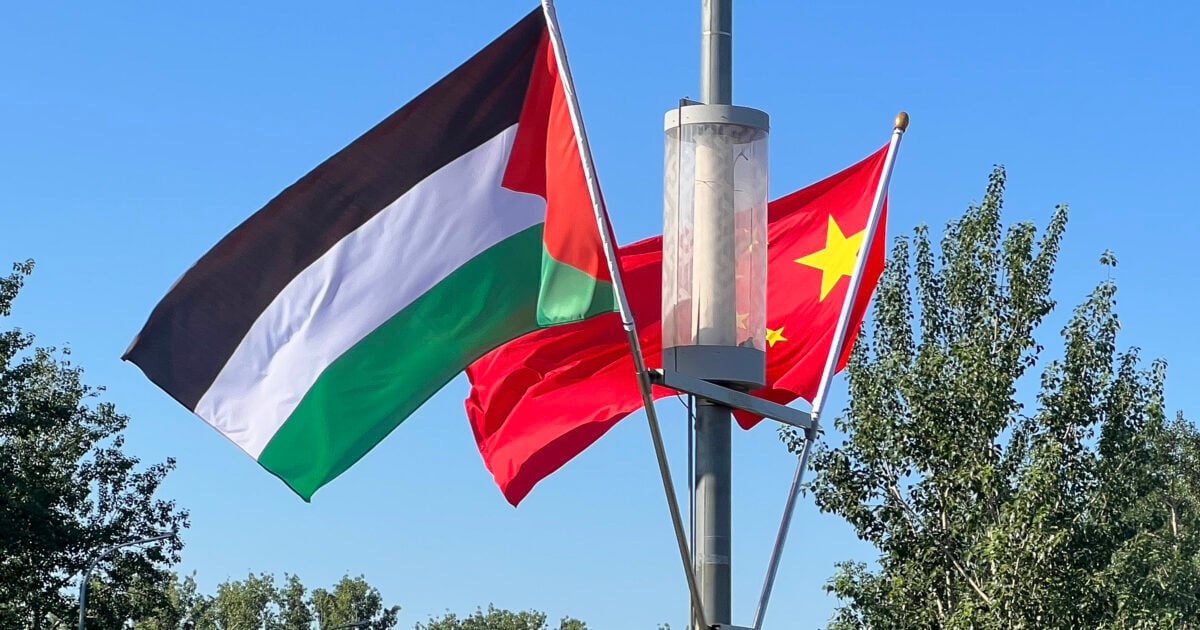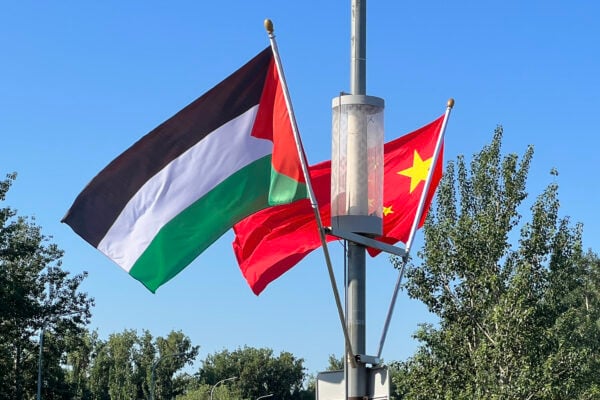

The Chinese interest in the Middle East boils down to a single word: oil. China has investments in the Middle East and encourages countries to join the Belt and Road Initiative (BRI) as well as the expanded BRICS grouping. However, all of these economic and diplomatic efforts stem from a single source: China is the world’s largest importer of oil, and Beijing wants to ensure an uninterrupted and cheap supply of energy.
China has become the world’s largest consumer and importer of oil. At the same time, Xi Jinping’s vision for the People’s Republic is to surpass the US economically, militarily, and diplomatically by the year 2049. To do this, China needs unfettered access to cheap energy.
Energy plays such an important role in China’s economic rise that oil and coal consumption, as well as emissions rates, are used by China analysts as proxy measures for the general health of the Chinese economy. When energy consumption or pollution increases, the factories are churning out products, exports are up, and Beijing is raking in the cash it needs to develop more advanced weapons.
The trajectory of both the Middle East region and global affairs underwent a significant shift in the 1970s when an agreement between the US and the Kingdom of Saudi Arabia effectively gave rise to the petrodollar.
Under this agreement, Saudi Arabia committed to pricing oil in dollars and persuading other OPEC members to follow suit. In return, the US not only became a major buyer of Saudi oil but also pledged military protection, including stationing US troops within Saudi territory, as well as selling the Kingdom advanced weaponry. This arrangement served the interests of both nations, particularly given Saudi Arabia’s hostile relations with many of the countries in the region, particularly Shia-led Iran.
A lesser-known advantage Saudi Arabia gains from its agreement with the US is the privilege of purchasing US debt before it is available to other global investors. This arrangement enables the Kingdom to invest its surplus petrodollar revenues in US Treasury securities preemptively, avoiding potential price increases that may occur when other buyers enter the market. The United States, for its part, benefits from a stable source of financing.
Now that the US is no longer the most important customer in the Middle East, China sees an opening to co-opt the region, displace the US, and become the prominent geopolitical force in the region.
The ability of the US to maintain its influence in the Middle East has always hinged on its relationships with key countries such as Egypt, Jordan, and Gulf Cooperation Council (GCC) members like Qatar and the United Arab Emirates (UAE). However, two pivotal players have consistently shaped US policy in the region: Saudi Arabia, with its significant oil production, robust economy, and formidable military; and Israel, a non-Muslim, non-Arab nation boasting stable governance, economic strength, and military prowess. Iran, with its large population, powerful military, and capacity to sway regional politics, has also emerged as a major influencer, for good or for ill.
Beijing attempted to present itself to the Middle East and the world as a peacemaker by brokering a peace deal between Saudi Arabia and Iran. If Beijing could convince Saudi Arabia that there was no threat from Iran, the Kingdom would no longer need US military protection. Additionally, since China is now the largest purchaser of oil, it would be easier for Beijing to convince Saudi Arabia to trade in yuan rather than dollars.
Additionally, as China inches up the scales of global power, it would be in a position to convince UN members to vote to remove sanctions on Iran. This would be welcomed news to Tehran and would provide China with a stronger, although subservient partner.
The real diplomatic hat trick in the Middle East would be for the US or China to get Saudi Arabia, Iran, and Israel on the same side. The successful alignment of the three would redefine power balances and alliances in the Middle East and beyond. The country that manages to broker such a historic agreement would ascend to a level of hegemony unparalleled in modern geopolitics.
And Trump was off to a good start with the Abraham Accords, getting two out of three. Unfortunately, his term came to an end, and the Biden Administration allowed the whole region to catch fire once again.
China and Saudi Arabia have steadily increased their level of cooperation, and now the Kingdom has become a BRICS member. Iran is economically dependent on China, as Beijing is one of the only countries willing to flout international sanctions, becoming the largest purchaser of Iranian oil. Over the past decade, Beijing has worked to build closer ties with Israel as well as attempting to broker peace between Israel and its neighbors.
Never missing an opportunity for propaganda, Beijing blamed its inability to implement a two-state solution on US meddling and warmongering.
The Israel-Hamas conflict appears to be a turning point in China’s strategy for its relations with the three key countries. Iran, because of its role in supporting Hamas, Hezbollah, and the Houthis, is being further ostracized from the US-led order and pushed toward Beijing.
China has not given up on courting Saudi Arabia; however, so far, the Kingdom sees no benefit in dropping the US dollar, the currency to which the Saudi Riyal is pegged and in which the majority of its oil profits of the last fifty years are invested. And no country, not even the Philippines under Duterte, has ever become so disillusioned with the US that they would allow Chinese troops on their territory.
Xi Jinping probably recognizes that he cannot negotiate a peace deal between Israel and Palestine. It seems that he has decided, instead, to cut his losses with Israel. Beijing already has a “Strategic Partnership” Agreement with the Palestinian Authority and has hinted that it would be the first country to recognize and normalize relations with an independent Palestine. By no longer trying to include Israel in its list of friends, China hopes to gain the support of the entire Muslim world. He is letting go of one country in exchange for 49 others.
The post China’s Interest in Gaza: Trading Israel for the Rest appeared first on The Gateway Pundit.